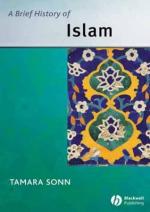|
This section contains 592 words (approx. 2 pages at 300 words per page) |

|
Legacy. The Muslim conquest of the Near East, North Africa, Iberia, and parts of South Asia in the late seventh and early eighth centuries established a new political and spiritual universe within a single century after the death of the prophet Muhammad. Early Muslims from Arabia and converts to Islam living in the newly conquered territories existed in close proximity to longstanding Christian, Jewish, and Zoroastrian communities. These groups maintained the traditions, culture, and scientific knowledge cultivated in the Near East over the preceding centuries under the aegis of Greek, Roman, Byzantine, Arab, and Persian rule. Early Muslim scholars and scientists—and their counterparts within the other religious communities—were heirs to the wisdom of the ancients. Natural curiosity, a lack of restrictive parochialism, and religious inducements toward the acquisition of knowledge—such as the famous hadith "Seek...
|
This section contains 592 words (approx. 2 pages at 300 words per page) |

|




